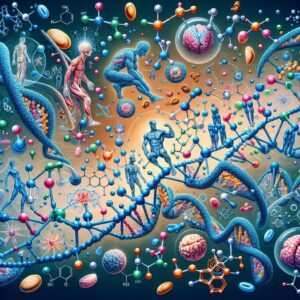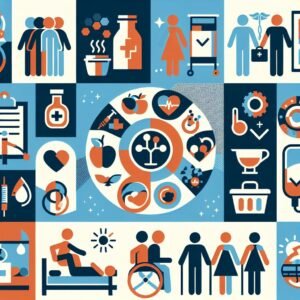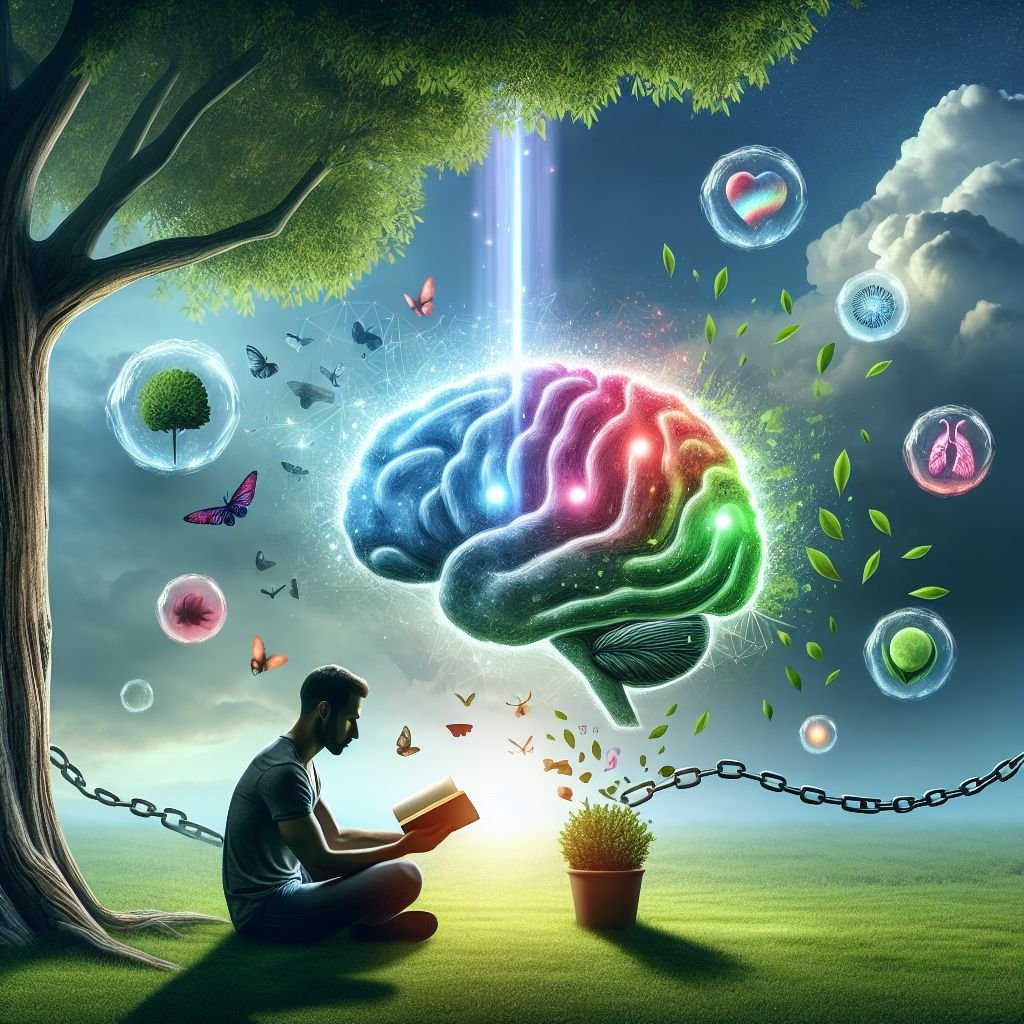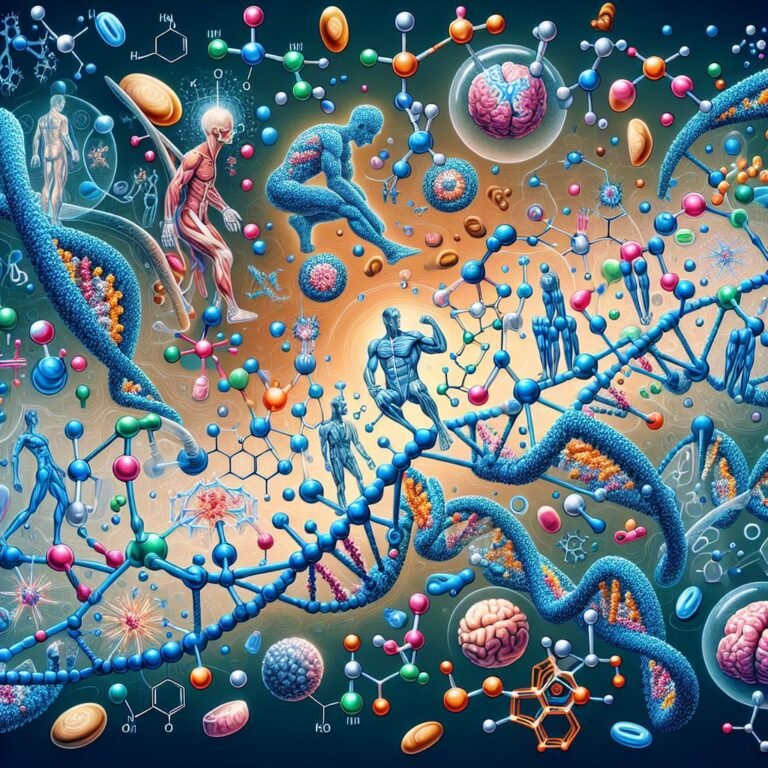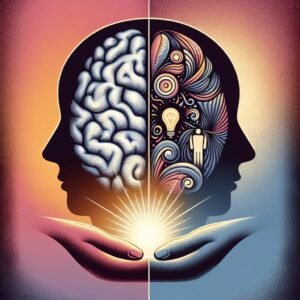Key Takeaways
ADHD affects both children and adults, often manifesting as inattention, hyperactivity, and impulsivity.
Common treatments include medication, behavioral therapy, and lifestyle changes, which can help manage symptoms effectively.
Diagnosing ADHD involves a comprehensive assessment by a healthcare professional, considering both symptoms and their impact on daily life.
Genetic and environmental factors play a significant role in the development of ADHD.
Implementing structured routines, engaging in regular physical activity, such as strength training, and maintaining a balanced diet are crucial management strategies.
ADHD Symptoms, Treatment & Management Strategies
Attention-Deficit/Hyperactivity Disorder (ADHD) is a neurodevelopmental disorder that can impact various aspects of life. It is characterized by symptoms such as inattention, hyperactivity, and impulsivity, which can affect both children and adults. Understanding ADHD is crucial for managing its symptoms and improving the quality of life for those affected.
Overview of ADHD and Its Impact
ADHD is more than just a childhood disorder; it often persists into adulthood, affecting work, relationships, and daily functioning. The disorder can lead to challenges in maintaining focus, organizing tasks, and controlling impulses, which can cause difficulties in academic, professional, and social settings.
Individuals with ADHD may experience low self-esteem, increased stress, and a higher risk of mental health issues such as anxiety and depression. Therefore, it’s essential to recognize and address these symptoms early on to mitigate their impact. For those looking for ways to manage stress, exploring yoga poses could be a beneficial practice.
Recognizing ADHD Symptoms
ADHD symptoms can vary widely, but they generally fall into three main categories: inattention, hyperactivity, and impulsivity. Recognizing these symptoms is the first step towards effective management and treatment.
- Difficulty sustaining attention
- Frequent fidgeting or restlessness
- Impulsive decision-making
- Disorganization and forgetfulness
Each individual may exhibit a unique combination of these symptoms, which can change over time or with different circumstances.
Signs of Inattention
Inattention is a hallmark symptom of ADHD. It involves difficulty focusing on tasks, particularly those that require sustained mental effort. Individuals may become easily distracted by external stimuli or their own thoughts. For those looking to improve focus and concentration, incorporating strength training into your routine can be beneficial.
For example, a child with ADHD might struggle to complete homework, often leaving tasks unfinished. Adults might find it challenging to focus during meetings or follow through on long-term projects.
Indicators of Hyperactivity
Hyperactivity is another core symptom of ADHD. It is characterized by excessive movement, such as fidgeting, tapping, or talking excessively. While this is more noticeable in children, adults with ADHD might experience an internal sense of restlessness. Engaging in activities like easy workouts can sometimes help manage these symptoms.
Traits of Impulsivity
Impulsivity in ADHD manifests as hasty actions without considering the consequences. This can lead to challenges in social interactions, as individuals might interrupt conversations or make decisions without adequate forethought.
For instance, an adult with ADHD might impulsively buy items they don’t need or interrupt a colleague during a discussion. These behaviors can strain relationships and lead to misunderstandings.
- Interrupting others during conversations
- Difficulty waiting for one’s turn
- Making quick decisions without considering outcomes
Diagnosing ADHD
Diagnosing ADHD requires a comprehensive evaluation by a healthcare professional. This process involves gathering information from various sources, such as parents, teachers, and the individual themselves, to understand the symptoms and their impact.
Assessment Process for ADHD
The assessment process typically includes interviews, questionnaires, and behavioral observations. A healthcare professional will evaluate the individual’s history, symptoms, and any coexisting conditions that might affect diagnosis and treatment.
Diagnostic Criteria
ADHD is diagnosed based on criteria outlined in the Diagnostic and Statistical Manual of Mental Disorders (DSM-5). These criteria include a persistent pattern of inattention and/or hyperactivity-impulsivity that interferes with functioning or development.
Causes and Risk Factors
While the exact cause of ADHD is not fully understood, research suggests a combination of genetic and environmental factors contribute to its development. Understanding these factors can help in managing the disorder effectively.
Genetic Influences
Genetic factors play a significant role in ADHD. Studies indicate that ADHD often runs in families, suggesting a hereditary component. Researchers are exploring specific genes that may be involved in the development of the disorder.
Environmental Factors
Environmental influences, such as prenatal exposure to tobacco or alcohol, low birth weight, and exposure to lead, can increase the risk of developing ADHD. Additionally, early childhood experiences and family dynamics may contribute to symptom severity.
It’s important to note that these factors do not cause ADHD directly but may increase the likelihood of its development. For those interested in holistic approaches to well-being, exploring yoga asanas might be beneficial as part of a comprehensive lifestyle strategy.
Standard Treatments
Managing ADHD effectively often involves a combination of treatments tailored to the individual’s specific needs. While there is no cure for ADHD, these treatments can significantly reduce symptoms and improve daily functioning.
It’s essential to work closely with healthcare providers to develop a comprehensive treatment plan that addresses both the symptoms and any co-occurring conditions.
Medications for ADHD
Medication is a common component of ADHD treatment. Stimulants, such as methylphenidate and amphetamines, are often prescribed as they help increase attention and decrease impulsivity and hyperactivity in many individuals.
Non-stimulant medications, like atomoxetine, are also available and may be preferred for individuals who experience side effects from stimulants or have certain health conditions.
Behavioral Therapy Options
Behavioral therapy is another crucial aspect of ADHD treatment. This type of therapy focuses on modifying behavior patterns and developing coping strategies to manage symptoms. For those interested in holistic approaches, exploring wellness retreats can complement traditional therapy methods by promoting relaxation and mindfulness.
For children, behavioral therapy often involves parents and teachers to help create supportive environments. For adults, therapy might focus on organizational skills, time management, and improving relationships. If you’re interested in enhancing your well-being, consider exploring wellness retreats in Hawaii as a complementary approach.
Therapists may use techniques such as cognitive-behavioral therapy (CBT) to help individuals challenge and change negative thought patterns.
Combined Treatment Approaches
Combining medication with behavioral therapy often yields the best results for managing ADHD. This integrated approach addresses both the neurological and behavioral aspects of the disorder, providing a comprehensive treatment strategy. For those interested in enhancing their overall well-being, exploring wellness retreats can complement traditional ADHD management strategies.
For example, a study published in the Journal of the American Academy of Child & Adolescent Psychiatry found that children who received both medication and behavioral therapy showed more significant improvements in symptoms compared to those who received only one form of treatment.
It’s important to regularly review and adjust treatment plans to ensure they remain effective as the individual’s needs evolve over time.
Lifestyle and Management Strategies
In addition to standard treatments, lifestyle changes can play a vital role in managing ADHD symptoms. These strategies can help individuals establish routines, improve focus, and reduce stress. For example, incorporating yoga poses into daily routines can be an effective way to enhance concentration and relaxation.
Maintaining a Routine
- Establish a consistent daily schedule
- Use planners or digital tools to organize tasks
- Break tasks into smaller, manageable steps
Creating a structured routine helps reduce distractions and increases productivity. It’s important to include regular breaks to prevent burnout and maintain focus.
For example, setting specific times for meals, exercise, and relaxation can help create a sense of stability and predictability, which is particularly beneficial for those with ADHD.
Encourage children to follow a similar routine by using visual schedules or checklists to remind them of their tasks and responsibilities.
Importance of Physical Activity
Regular physical activity is crucial for managing ADHD symptoms. Exercise helps improve concentration, reduce impulsivity, and boost mood by increasing the levels of neurotransmitters like dopamine and norepinephrine in the brain. For instance, incorporating yoga poses can be an effective way to enhance focus and relaxation.
Nutrition and Sleep Considerations
A balanced diet and adequate sleep are essential for managing ADHD. Eating a variety of nutrient-rich foods supports brain function, while sufficient sleep helps improve focus and emotional regulation.
Consider incorporating foods high in omega-3 fatty acids, such as fish, flaxseeds, and walnuts, as these have been shown to support brain health.
Social Support and Relationships
Strong social support is vital for individuals with ADHD. Building a network of understanding friends, family, and professionals can provide encouragement and guidance.
Participating in support groups or online communities can also be beneficial, offering a space to share experiences and strategies with others facing similar challenges. For more insights, you can explore tips for managing adult ADHD on HelpGuide.org.
Innovative and Emerging Therapies
In recent years, new therapies and technologies have emerged to help manage ADHD symptoms. These innovative approaches offer additional tools for individuals seeking alternatives or supplements to traditional treatments.
Role of Mindfulness and Meditation
Mindfulness and meditation practices have gained popularity as complementary therapies for ADHD. These techniques help individuals develop greater awareness and control over their thoughts and actions, similar to the practices found in wellness retreats in Hawaii.
Practicing mindfulness can improve attention and reduce stress, making it a valuable addition to an ADHD management plan.
Technology-Assisted Interventions
Technology-assisted interventions, such as apps and online programs, offer new ways to support ADHD management. These tools can help individuals develop organizational skills, track progress, and receive reminders for tasks and appointments.
While these technologies can be helpful, it’s essential to use them as part of a comprehensive treatment plan and not rely on them solely for managing symptoms. For example, integrating physical activities such as yoga asanas can be a beneficial addition to your routine.
Dietary Supplements and Alternatives
Dietary supplements have gained attention as potential aids in managing ADHD symptoms. While they are not a substitute for traditional treatments, certain supplements can support brain health and improve focus.
Omega-3 fatty acids, commonly found in fish oil, are among the most studied supplements for ADHD. Research suggests that these essential fats can enhance cognitive function and reduce symptoms of inattention and hyperactivity. For more information on managing ADHD, check out these tips for managing adult ADHD.
Another popular supplement is zinc, which plays a role in neurotransmitter regulation. Some studies indicate that zinc deficiency may be linked to ADHD symptoms, and supplementation could be beneficial for individuals with low zinc levels.
Coping Strategies for Daily Life
Living with ADHD requires practical strategies to navigate daily challenges. These coping mechanisms can help individuals manage symptoms and improve their overall quality of life. For example, incorporating easy workouts into your routine can enhance focus and reduce stress.
Implementing structured routines and breaking tasks into smaller, manageable steps are effective ways to stay organized and focused. Additionally, using visual aids like calendars or checklists can serve as helpful reminders.
Time Management Tips
Time management is crucial for individuals with ADHD, as they often struggle with procrastination and time blindness. Here are some practical tips to enhance time management skills:
- Set specific deadlines for tasks and stick to them.
- Use timers or alarms to create a sense of urgency.
- Prioritize tasks by importance and tackle high-priority items first.
- Break tasks into smaller chunks and take breaks to avoid burnout.
Organization Techniques
Staying organized can be challenging for those with ADHD, but employing certain techniques can make it easier. Consider the following strategies:
- Designate specific places for frequently used items to reduce clutter.
- Utilize color-coding systems to categorize documents and tasks.
- Regularly declutter spaces to maintain a tidy environment.
Incorporating these techniques into daily life can help minimize distractions and enhance productivity.
Focus and Concentration Aids
Maintaining focus can be difficult for individuals with ADHD, but several aids can help improve concentration, such as incorporating easy workouts to enhance mental clarity and focus.
- Use noise-cancelling headphones to block out distractions.
- Create a quiet and dedicated workspace free from interruptions.
- Incorporate short bursts of intense focus followed by brief breaks, known as the Pomodoro Technique.
These aids can support individuals in completing tasks more efficiently and with greater accuracy.
Final Thoughts
ADHD is a complex disorder that requires a multifaceted approach to treatment and management. By understanding the symptoms and implementing effective strategies, individuals can lead fulfilling and productive lives.
It’s important to remember that each person’s experience with ADHD is unique, and treatment plans should be tailored to their specific needs. Collaboration with healthcare professionals, educators, and support networks is essential for achieving the best outcomes.
Frequently Asked Questions (FAQ)
Understanding ADHD can be challenging, so here are some common questions and answers to provide clarity:
What are common ADHD symptoms in adults?
- Difficulty focusing on tasks
- Impulsive behavior and decision-making
- Restlessness and constant movement
- Challenges with time management and organization
These symptoms can vary in intensity and may change over time.
How is ADHD diagnosed?
ADHD is diagnosed through a comprehensive evaluation by a healthcare professional, which includes interviews, questionnaires, and behavioral observations. The assessment considers the individual’s history, symptoms, and any coexisting conditions.
What are effective treatments for ADHD?
Effective treatments for ADHD often include a combination of medication, behavioral therapy, and lifestyle changes. Stimulant medications, such as methylphenidate and amphetamines, are commonly prescribed, while non-stimulant options are available for those who experience side effects.
Behavioral therapy focuses on modifying behavior patterns and developing coping strategies, while lifestyle changes such as maintaining a routine, regular exercise, and a balanced diet can support overall management.
Can lifestyle changes help manage ADHD symptoms?
Yes, lifestyle changes can significantly help manage ADHD symptoms. Establishing a structured routine, engaging in regular physical activity, and maintaining a balanced diet are all crucial for improving focus and reducing impulsivity.
Are there any new treatments for ADHD?
Emerging therapies, such as mindfulness practices and technology-assisted interventions, offer additional tools for managing ADHD symptoms. These innovative approaches can complement traditional treatments and provide new ways to enhance focus and organization.
It’s essential to consult with healthcare professionals to explore these options and determine the best approach for individual needs. For those interested in physical wellness, consider exploring strength training as a beginner to complement your health journey.
Attention-deficit/hyperactivity disorder (ADHD) is a neurodevelopmental disorder that affects both children and adults. Symptoms include inattention, hyperactivity, and impulsivity, which can impact daily functioning and relationships. Proper diagnosis and management are crucial for individuals with ADHD. For more information on diagnosis and treatment, visit the Mayo Clinic’s guide on ADHD.



